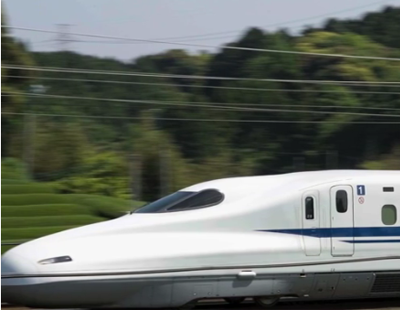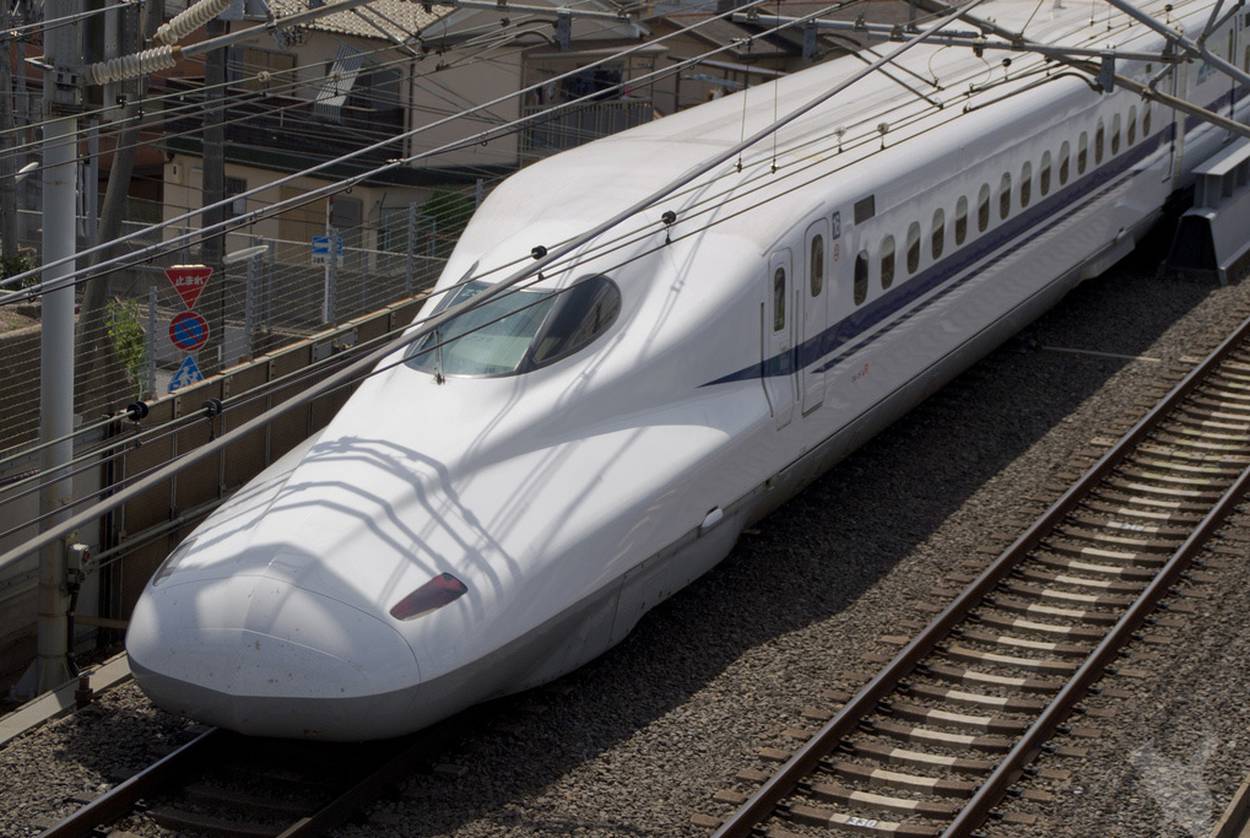

Norihiro Kataoka
The Japanese Shinkansen is a high-speed train used by Central Japan Railway Company in Japan. The same type of train would be used for a proposed high-speed railway between Houston and Dallas.
State representatives heard arguments this week about a bill that would make it more difficult to construct high-speed rail projects in Texas — including the long-planned bullet train between Houston and Dallas.
House Bill 1402, written by state Rep. Cody Harris of East Texas, would prevent the use of state or local funding to alter roadways for the construction of high-speed rail. The bill was discussed Monday during a hearing of the Texas House Subcommittee on Transportation Funding.
Opponents and proponents alike discussed the proposed law and its possible effects on projects like the Houston-to-Dallas bullet train — which has sought for more than a decade to create a 240-mile railway that would travel between the state’s two largest cities in approximately 90 minutes.
Harris said his bill was created in direct opposition to the effort. He specifically mentioned Texas Central — the private company that hatched the plan and partnered with Amtrak in an attempt to see the project to fruition.
“Texas Central wants to skirt paying local property taxes that were owed but use local property tax dollars to pay for their project,” Harris told the subcommittee. “Bill 1402 prohibits the use of taxpayer dollars in any form from the state to local level from being used to pay for the alteration of the roadway related to the construction of a high-speed rail project.”
Waller County Judge Trey Duhon, who also is the president of Texans Against High-Speed Rail, said he has long argued against the Houston-to-Dallas project, which has been met with opposition from rural landowners along the proposed route.
“I’ve been coming here to the Capitol every session since 2015 to share my concerns about the proposed high-speed rail project,” he said. “HB 1402 by Chairman Harris will protect state money and ensure that public funds throughout the state are safeguarded from being wasted on a washed up, overhyped, underfunded, bait and switch, high-speed rail project.”
Duhon argued the project was already a failure and said that public money should not be spent on it.
“In the future, if a high-speed rail company wants to create a plan that addresses the failures of this project, this bill will keep rogue public entities from accepting and spending funds on projects that are outside of their jurisdiction, as well as ensure that counties like mine aren’t compelled to pay for rerouting of roads that we need exactly where they are,” he said.
Speaking in opposition to the bill and in support of the high-Speed rail project was Peter LeCody, the president of Texas Rail Advocates, a nonprofit. LeCody told the subcommittee the bill would be unfair for high-speed rail compared to other forms of transportation.
“[The bill] narrowly defines it to a particular mode of transportation, high-speed rail,” LeCody said. “It singles out one company in particular in one form of transportation — intercity high-speed rail service that is reasonably expected to reach speeds of at least 110 miles an hour. That doesn’t give us a level playing field with other forms of transportation. This bill would cripple that ability to advance any high-speed rail project.”
Another concern brought up by supporters of the bill was that the projected path of the high-speed railway was potentially interfering with development projects.
William Papadopoulos, with Delta Tory, a commercial real estate developer, said the project had stalled the company’s plans for a development near Hockley, northwest of Houston.
“This imaginary line on published maps has prevented us from developing our 993-acre property, where we aim to create jobs within a first-class business park to onshore industry and to grow the regional and state tax base,” he said. “We also seek to develop affordable housing. Unfortunately, potential homeowners and corporations consider the rail line to be a nuisance.”
Using existing tracks would solve this problem, Papadopoulos said.
“Amtrak could still go fast and avoid any road-rail conflict by using an Acela-type train on existing tracks,” he said. “There’s no need to tear up Texas when there’s a cheaper and better way using existing right-of-way such as along I-45.”
Andy Gent, the final speaker on HB 1402, said he was representing the interests of John Kleinheinz — the CEO of Texas Central and a major funder of the Houston-to-Dallas project.
Gent said the project was not asking for taxpayer funds and that its impact on private property would be less than that of interstate projects.
“There’s approximately 500 single-family homes or dwelling residences that are impacted by the alignment, so I certainly have empathy for all those people,” he said. “But if you look at what Houston is doing in I-10 and I-45, their most recent studies suggest they’re going to displace 1,100. So, we’re talking 20 times the distance. The vast majority of this land is rural.”
The project cannot use other routes, Gent said, because a federal environmental study had established the proposed path, which includes a stop in Grimes County.
“It wasn’t chosen because we wanted to build it the way that it was being built,” he said. “It was chosen to have the smallest environmental impact that it could, including the smallest number of homes that get dealt with in its path. So, the I-45 path corridor was studied, and unfortunately, that was disqualified by the FRA [Federal Railroad Administration].”
If it were not for the COVID-19 pandemic, Gent said he believed construction on the project would have already begun.
Responding to questions from state Rep. Jared Patterson of Denton, the subcommittee chair, Gent also said the proposed railway was “shovel-ready,” although he admitted it was not fully funded and that the right-of-way was only partly secured.
“I mean, obviously, we don’t have the financing put together,” Gent said. “We don’t have all the right-of-way acquired. We’ve acquired approximately 25% of the parcels that are needed. … We’re not asking the taxpayers to pay for this project right now. What we’re saying is we have to ultimately partner with the State of Texas and with TxDOT [Texas Department of Transportation] to figure this out.”
HB 1402 was left pending following the discussion and would need to be voted out of committee to make its way to the full Texas House of Representatives.






